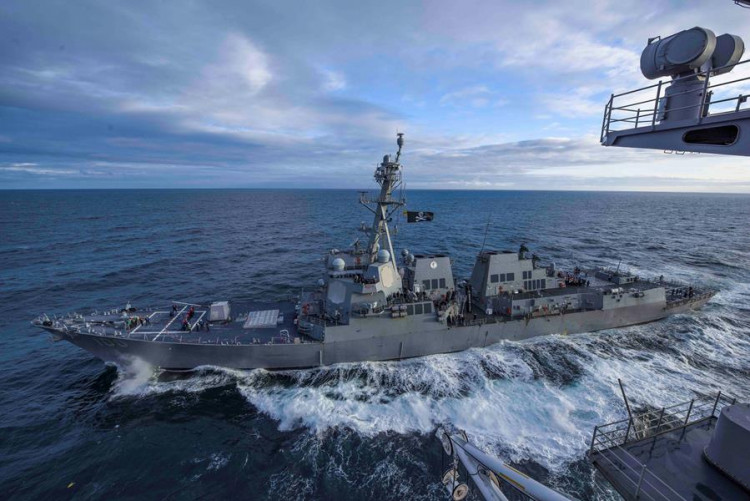In the wake of escalating conflict and subsequent threats to global shipping in the Red Sea, the newly formed 20-nation escort alliance, led by the U.S., faces a test of unity and effectiveness. Despite the formation of this alliance, Yemen's Houthi rebels continue their aggressive attacks on commercial vessels, defying the intended deterrent effect and causing widespread concern among shipping companies and regional players.
Ten days after the alliance's announcement, it has become evident that the risk of broader regional conflict is escalating. The U.S. Central Command's recent engagement, where the USS Mason intercepted drones and missiles from the Houthi rebels, marks a significant increase in military activity in the region. This series of assaults, including one targeting a Mediterranean Shipping Company vessel, is the latest in a line of over 22 attacks since mid-October. Despite these efforts, the Houthis have demonstrated their capability and willingness to confront even a U.S. carrier strike group, underscoring the gravity of the situation.
The response within the alliance is far from unified. Countries like Spain and Saudi Arabia have expressed reservations or outright refusals to participate actively. France maintains its naval independence, and Australia has limited its involvement to non-combat roles, focusing on the Indo-Pacific. Even Saudi Arabia, directly impacted by the conflict, is seeking a diplomatic resolution to the Yemeni civil war rather than military escalation.
Shipping companies are also divided on how to navigate these treacherous waters. While Maersk is preparing to resume transportation in the southern Red Sea, others like Hapag-Lloyd continue to reroute their vessels via the Cape of Good Hope, incurring additional costs and extended travel times. This divide reflects the broader uncertainty and the weighing of risks versus economic pressures within the industry.
The Houthis' continued aggression and the alliance's internal rifts present a complex challenge. The U.S. is keen to avoid a new Middle Eastern war, especially in an election year, opting for a defensive strategy that intercepts attacks without directly targeting Houthi strongholds. However, experts like Salvatore Mercogliano warn that if the Houthis escalate their tactics to more sophisticated "drone swarm" attacks, the limited U.S. naval presence might be overwhelmed, leading to potential casualties and significant disruptions.
As the situation evolves, the Red Sea remains a volatile flashpoint with implications for global trade, regional stability, and international diplomacy. The world watches closely as the escort alliance navigates these troubled waters, balancing the need for security with the desire for a peaceful resolution to a complex and dangerous conflict.




